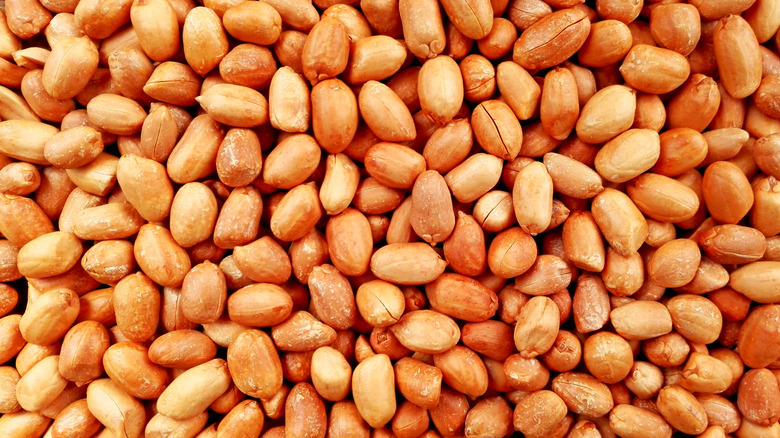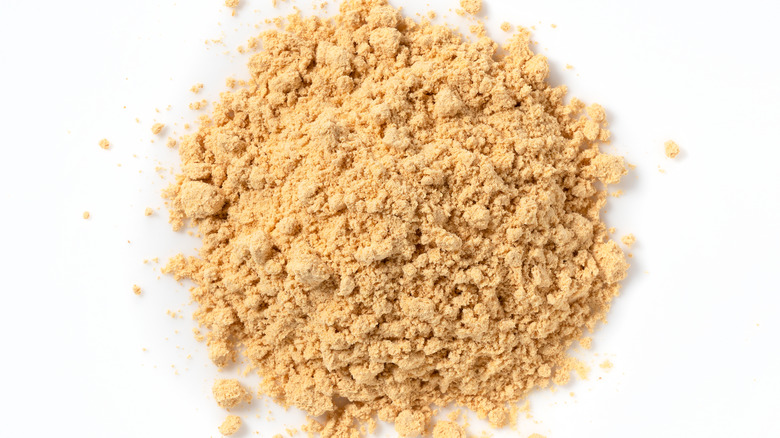This Ingredient Could Help Childhood Peanut Allergies, According To Science
Whether you pack a peanut butter and jelly sandwich for lunch on the regular, order pad Thai tossed with a salty-sweet peanut sauce on Friday nights, or bite into a Reese's Peanut Butter Cup when you're craving candy, there are a lot of delicious ways to enjoy peanuts. For as tasty as they are, the popular legumes have plenty of health benefits, too. Healthline reports that peanuts contain both protein and healthy fats, which can help you build muscle and improve heart health and digestion.
Unfortunately, not everyone can eat these tiny legumes. Based on a survey of more than 40,000 people conducted in 2015 and 2016, a 2021 paper published in the Journal of Allergy and Clinical Immunology found that about 3% of American adults reported that they're allergic to peanuts. However, researchers have spent years trying to figure out a way to prevent peanut allergies, or at least reduce the chances of them occurring in children. Now, according to a recent study, they've potentially found an ingredient that could help solve the problem (via The Lancet Journal). Here's the food that scientists are saying could help with childhood peanut allergies, at least based on early findings.
Researchers studied the effect of peanut protein on allergies
While up to 20% of children who have a peanut allergy grow out of it (via the American College of Asthma, Allergy, and Immunology), many parents are no doubt still eager to find ways to prevent their kids from ever being allergic in the first place. Good news: Scientists may finally have found some hope when it comes to preventing peanut allergies. The key might be addressing the issue early in life.
A recent study published in The Lancet Journal looked at the effect of peanut protein powder on allergies in children. Over the course of about 30 months, researchers gave 96 children between ages 1 and 3 small doses of peanut protein while another 50 kids received a placebo. After that time was up, 71% of the kids who received the peanut protein were able to eat what the Associated Press described as "the equivalent of 16 peanuts" and not trigger an allergic response. "The outcomes suggest a window of opportunity at a young age for intervention to induce remission of peanut allergy," the researchers wrote in their findings.
However, an expert warned that parents should remain careful when it comes to exposing their kids to peanuts. "There still needs to be some caution about thinking of this as a cure," Dr. John Kelso, an allergy specialist at Scripps Clinic in San Diego, explained.

